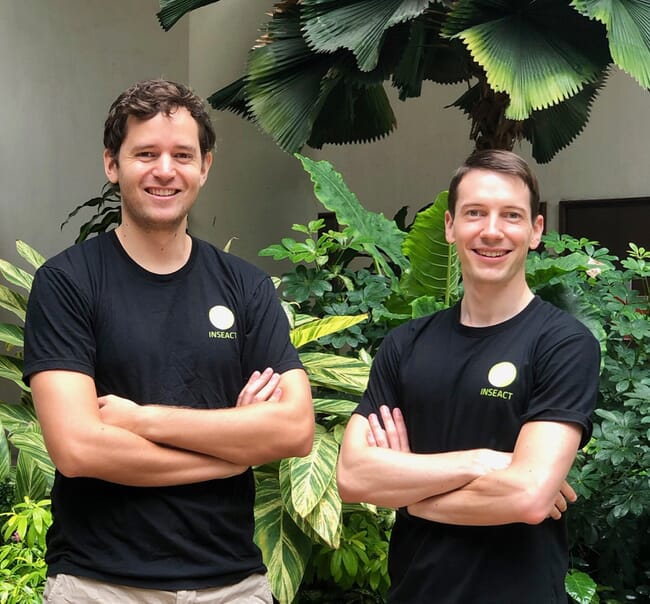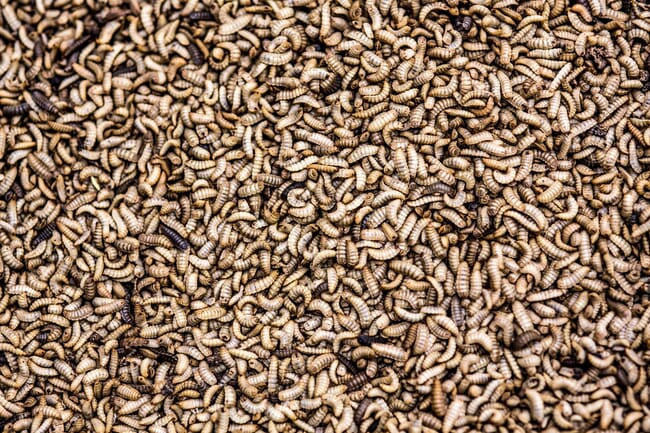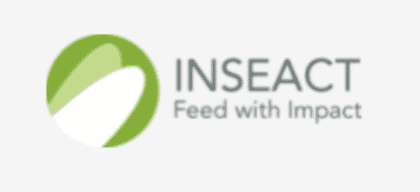
INSEACT Founders Tim Van Vliet and Michael Badeski were joined in cutting the ribbon by the Malaysian Deputy High Commissioner (Mr Muhammad Radzi Bin Jamaludin), Ambassador for the Kingdom of the Netherlands (HE Margriet Vonno), and Principal Investment Specialist (Mr Teo Yee Hean) of Asian Development Bank, one of INSEACT’s lead investor. Guests then toured the newly-opened site, which stands out as Singapore’s largest insect protein facility.
After receiving the keys to the completely empty site in September of last year, INSEACT completed construction and equipment installation and set up production and R&D activities in four months, while remaining 10 percent under budget. In the first few weeks of ramping up in December 2021, the colony produced 60 million insects.
INSEACT specialises in producing sustainable insect protein for aquaculture, starting with shrimp farming. It uses waste from palm oil operations as a raw material to feed the insects. Its cutting-edge solution enables a fully circular economy by redirecting waste streams from palm oil production away from carbon-emitting landfills to be bioconverted by the insects.

© InnovaFeed
The new facility is operated by INSEACT’s growing team of eight employees, half of whom have extensive prior insect protein experience. The facility adapts engineering technologies used across other manufacturing and farming industries to lay the foundation for large scale expansion of its operations. Its processes run on an amalgamation of machinery and equipment sourced internationally, including from the Netherlands where the insect industry has grown a steady footprint this past decade.
Michael Badeski, COO, said: “The past twelve months have seen INSEACT go from zero to one, as the first step of our roadmap was achieved by transitioning our protein production from an idea to an operational reality. Last January, the company had no employees, only partially secured seed funding, and neither Tim nor myself were located in Singapore. Today, we are producing insect protein from the most advanced and fastest-built insect pilot facility in Singapore.”
Tim van Vliet, CEO of INSEACT, added: “The insect protein space is booming globally. INSEACT differentiates itself using palm oil waste: a more sustainable, affordable and scalable feedstock. In addition, our modular technology enables fast and low-cost scaling. Also, through our industry partners we have unique access into the aquaculture space.”

In 2021, the global food price index increased 27 percent, and after 50 years of decline the global prevalence of undernourishment has started increasing. Growing populations and affluence levels across the globe apply immense pressure on our food systems, and protein-rich food are the most sought after and resource-intensive to produce. INSEACT is progressing toward its goal of sustainably bridging the protein-population gap by using wastes from the palm oil industry, otherwise destined for landfills, as feedstock for its black soldier flies. In so doing, it will prevent 11 tonnes of CO2 emissions for every tonne of insect protein produced.
INSEACT’s new facility is but a precursor of things to come, as it serves as proof-of-concept for larger scale operations, is a sandbox for innovation, and offers research capabilities to continue optimising the underlying science for years to come. The startup is currently designing its first commercial-scale facility to be built in Malaysia later this year.




